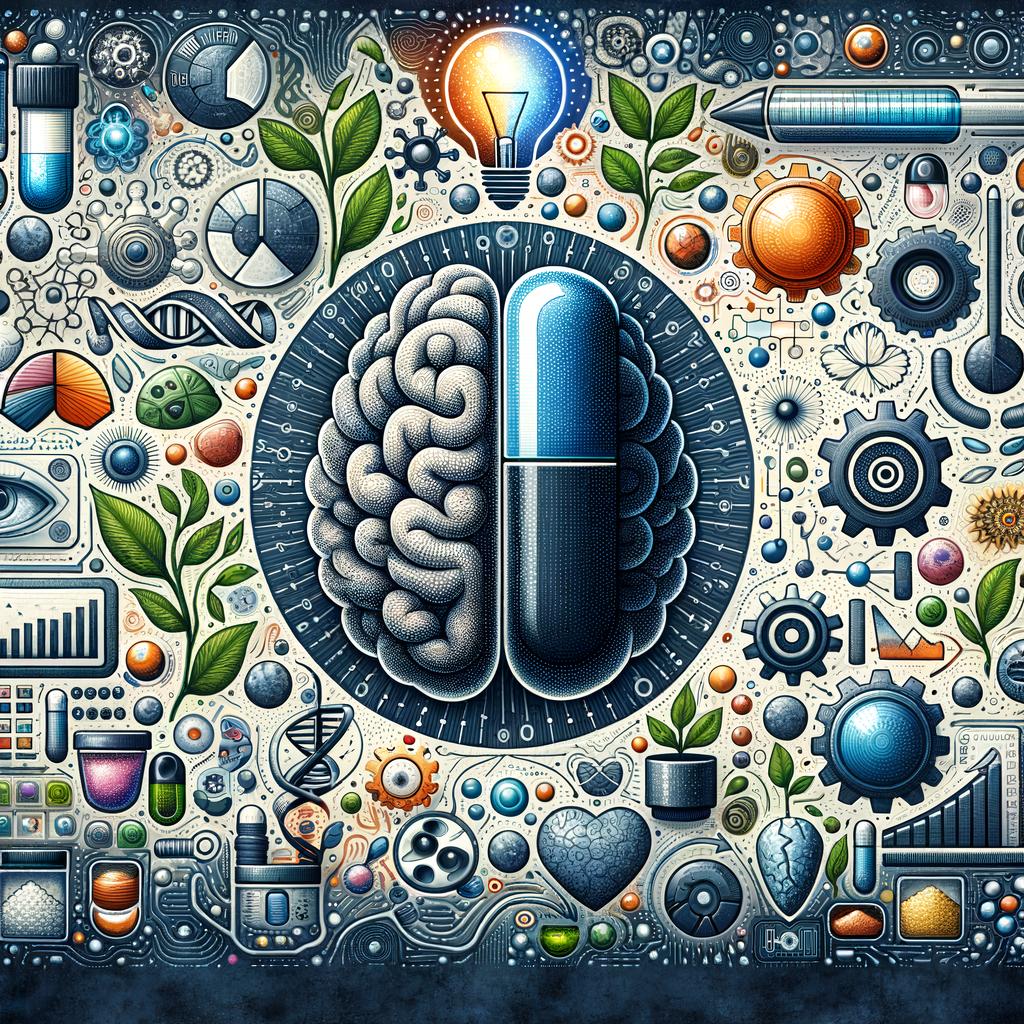
Introduction to Nootropics and their users
So, you’re asking, “Who should use nootropics?” Simply put, nootropics are for anyone seeking enhanced cognitive abilities, from students and athletes to professionals and the elderly. These clever compounds offer a host of mental benefits, including improved memory, concentration, and mood. We’ll explore in greater detail who could most benefit from nootropics and fundamental factors to consider before incorporating them into your regimen.
Nootropics for Students
For worn-out students cramming for exams, nootropics can be a scholarly savior. They intensify focus, bolster memory retention, and combat fatigue – a perfect recipe for powering through late-night study sessions. But don’t expect miracles—nootropics offer auxiliary support, not a free pass to procrastination.
Mature Minds and Nootropics
Interestingly, it’s not just students who reap the rewards. Nootropics also present potential perks for mature minds. As we age, our cognitive abilities naturally dwindle. Nootropics, with their neuro-boosting power, can help keep the gears of the mind well-oiled, enhancing cognitive longevity. Remember, while nootropics may act as a shield against mental decline, they’re certainly not a cure.
Nootropics for Professionals
Workforce warriors, do you dream of climbing the corporate ladder at a gallop instead of a crawl? Nootropics might just be your hidden ace. They increase productivity, motivation, and brain performance – all vital for staying ahead in a competitive career landscape. So whether you’re a spirited start-up founder or a frantic freelancer, nootropics could offer the mental edge you need to succeed.
Athletes: Nootropic Advantages
Even athletes are hopping on the nootropic bandwagon, not for brawn, but for brain gains. Mental toughness and concentration are as essential as physical strength in sports. Thus, nootropics can act as an unseen catalyst, honing focus and boosting motivation to push beyond the pain barrier and achieve goals.
Nootropics: A Tool for All?
Akin to a swiss army knife, nootropics can be a handy tool for many, but they aren’t for everyone. Make sure you’re not allergic to any components and consult your doctor if you have any underlying health conditions. They’re not a magic bullet, but if used wisely, nootropics can enhance your mental capabilities, no matter your walk of life.
Nootropics’ Role in Modern Lives
In our fast-paced, high-pressure society, it’s easy to feel overrun, mentally exhausted. Nootropics can be a safe, natural means to improve brain health and combat cognitive stress. But remember, nootropics are a supplement, not a substitute for a balanced lifestyle. Regular exercise, a healthy diet, and quality sleep should form the cornerstones of your cognitive care plan.
Conclusion: Who Should Use Nootropics?
Wrapping up, nootropics stand as a beacon for those navigating the fog of mental fatigue, memory wobbles, or concentration conundrums. Whether you’re a student, professional, athlete, or the elderly, these cognitive enhancers can uncap potential, unlock productivity, and uplift mood. However, it’s vital to remember that they work best complementing healthy lifestyle choices, not replacing them.
Frequently Asked Questions
1. Are nootropics okay for teenagers to use? Cross-check with a healthcare professional to ensure nootropics suit the individual’s age, especially the under 18s.
2. Can I use nootropics daily? Yes, but to avoid tolerance build-up, it’s wise to have regular breaks from use.
3. Do nootropics affect sleep? Some nootropics can boost alertness, so avoid taking them close to bedtime.
4. Can people with high blood pressure use nootropics? Consult your doctor before starting any new supplement regime, particularly if you have existing health concerns.
5. Are nootropics addictive? Most nootropics are not addictive, but everyone reacts individually, so monitor your response closely.


0 comments